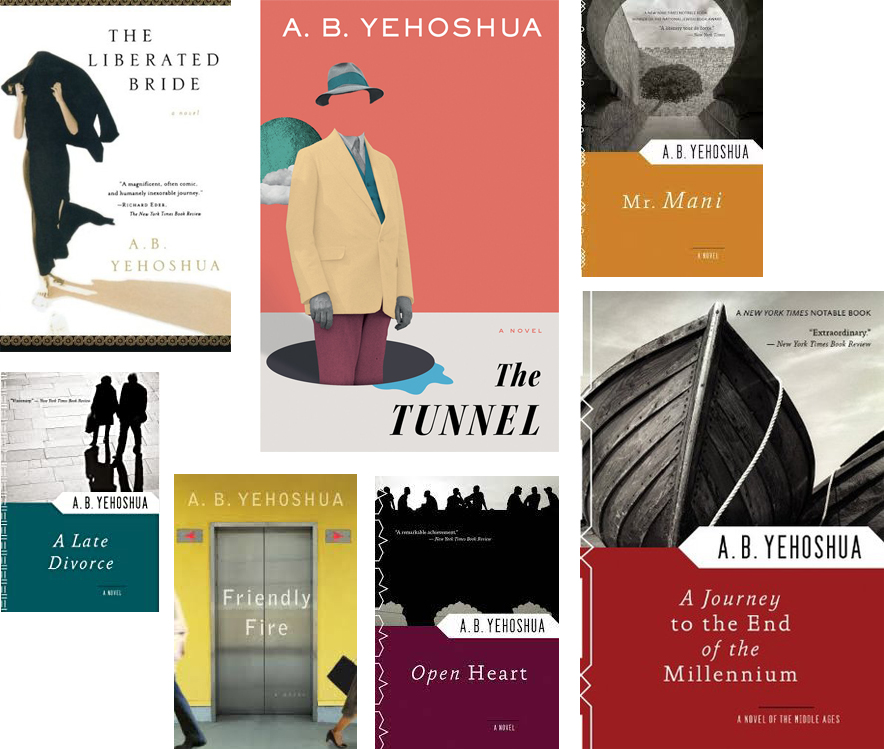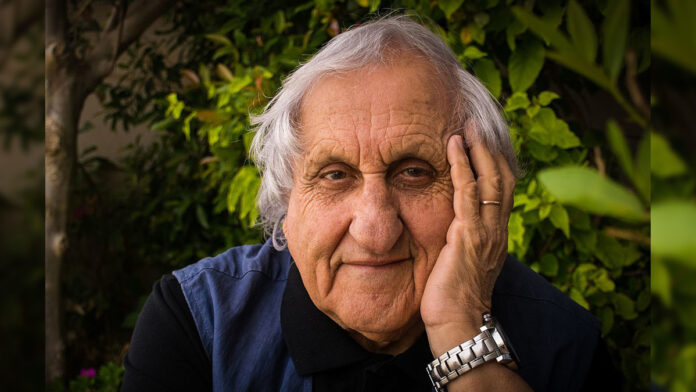— so said A.B. Yehoshua z”l, the larger-than-life grand Israeli writer
By Aviva Laskov
A.B. Yehoshua, the most prominent Israeli author and a unique voice of his generation, winner of the Israel Prize 1995, died at the age of 85 on 14 June this year.
Just a quick glance at the Israeli morning papers of Tuesday 14 June reveal the centrality to Israelis of A.B. Yehoshua z”l. That morning tributes poured in from every literary and political corner. This larger-than-life personality was not a politician, nor a philosopher, high-ranking military officer or media celebrity, yet he was all of those together. Yehoshua has emerged as the ‘elder’ whose words matter. Like his contemporaries in the literary arena, David Grossman, and the late Amos Oz, he wrote fiction while also dipping his pen into commentary and political activism; almost assuming the role of ‘the watchman unto Israel’ in the biblical sense. This, in a unique Israeli culture which holds the dichotomy of the ancient and the modern at its core.
Avraham Gabriel Yehoshua (or Booli, as he was called) was born in 1936 in Jerusalem to a Sephardi family. His scholar father, Yaakov Yehoshua, was fifth generation in Israel; his mother, Malka Rozilio, immigrated from Morocco. He grew up in Jerusalem, then served in the army as a paratrooper before studying and teaching literature at The Hebrew University. Later, he moved to Haifa, where he married his beloved wife Ika and spent most of his life. Ika passed away in 2016.
Reading his novels, one cannot but notice how this biography manifested in his fiction. Many of Yehoshua’s characters are given Sephardi names such as Mr Mani, Molcho, Luria, Ben-Attar, and others. The landscapes of his writing also reflect his favourite places: Jerusalem (in Molcho) and Haifa (in The Liberated Bride) among others.
Yehoshua, wrote his first short story Death of An Old Man in 1957. His symbolic-surreal short stories, published in 1962, were greatly influenced by Agnon, Camus, Kafka, Faulkner, Dostoevsky, and Virginia Wolf. Stories like Facing the Forests and Three Days and a Child made Yehoshua an iconic, avant-garde writer both literarily and politically. His stories were very different from his predecessors — detached from autobiographical elements and removed from time and place.
Over time, Yehoshua allowed more of his own background and Israeli historical events to filter into his fiction. In The Liberated Bride (2001), for example, the main character is a professor of Eastern Studies at Haifa University thus portraying a man very like Yehoshua, who taught literature at Haifa University.
Yehoshua’s first novel, The Lover was published in 1977. Other novels followed. A Journey to the End of the Millennium, Open Heart, Molcho and The Tunnel are but a few. Yehoshua wrote 15 books including his last, The Third Temple, published just a few months before he died, thus defying age and illness.
His books were translated into 30 languages, and some were adapted to screen and stage. Over the years Yehoshua won awards such as the Bialik Prize, the Brenner Prize, and the prestigious French Medici Prize (2012). Looking at his oeuvre, Yehoshua’s most celebrated work is Mr Mani (1990), by his own admission and agreed to by literary critics and public vote.
While fiction was his main genre, Yehoshua also wrote non-fiction books and articles dealing with questions of Jewish and Israeli identity. One such book (Can Two Walk Together?) described the actual meeting between Ben Gurion and Zeev Jabotinsky in London in 1934.
Gender is a major focus in Yehoshua’s work. Irrespective of profession or religion, and whether a lover, a bride or a middle-aged woman travelling on her own to Africa, the women in Yehoshua’s fiction are mostly strong and opinionated.
Reading Yehoshua’s work, one quickly discovers his love for Israel and his deep public concerns mostly about the relationship between Israel and the Golah (or Israelis and world Jewry) and the relationship between Jew and Arab in Israel.
Regarding the issue of Israel vs. Golah, the very dugri (direct) Yehoshua managed to upset Jews, especially in America whenever he repeated his deeply rooted belief that one can be a fully-fledged Jew only within the Jewish state, living by its laws, rights, and obligations. One is Israeli first and Jewish only later.
This theme is apparent in some of Yehoshua’s novels (Friendly Fire, A Journey to the End of the Millennium).
The other issue is the complicated co-existence of Jew and Arab in Israel, which necessitates some heroic solutions and manipulations, as is manifested in The Liberated Bride and The Tunnel. In the latter, an elderly engineer who is a Ben Gurion follower, is trying to find a very creative solution to enable the survival of a Palestinian family in the Israeli Negev.
In this regard Yehoshua recently wrote, “For 50 years I have worked tirelessly for the solution of the two states. But today, precisely when the concept of ‘Palestinian state’ becomes a permanent concept in the wider world, it seems that this vision can no longer be realised, and that the time has come to think honestly about other solutions.”
Yehoshua argued with many, including his friend Amos Oz, about this change in his political perspective which could eventually lead to one state for Jews and Arabs in Israel.
In September 2021 in a documentary movie by Yair Kedar celebrating Yehoshua’s life, Yehoshua half-jokingly said, “We must forget more … dealing too much with the past is paralysing… We all need a little dementia, the Israelis… need a little bit of dementia, the Palestinians… also need a little dementia, we all need it to let go of some things to make space for new things”.
President Herzog described Yehoshua as, “One of Israel’s greatest authors in all generations, who gifted us his unforgettable works, which will continue to be part of us for generations to come”.
May his memory be blessed יהי זכרו ברוך
* Books by A.B.Yehoshua are available for borrowing at The Gitlin LIbrary.

• Published in the August 2022 Digital Edition – Click here to read it.
• To advertise in the Cape Jewish Chronicle and on this website – contact us on 021 464 6700 ext. 104 or email advertising@ctjc.co.za. For more information and advertising rate card click here.
• Sign up for our newsletter and never miss another issue.
• Please support the Cape Jewish Chronicle with a voluntary Subscription for 2022. For payment info click here.
• Visit our Portal to the Jewish Community to see a list of all the Jewish organisations in Cape Town with links to their websites.
Follow the Chronicle: Facebook | Instagram | Twitter | LinkedIn











